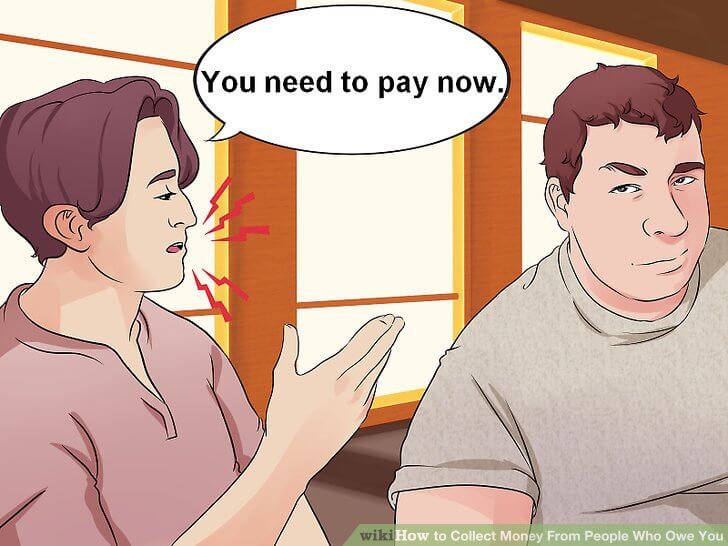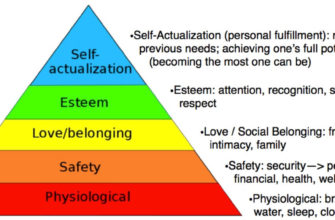Owing money is no fun–especially when you need it back. You might feel frustrated when the debtor ignores your requests. Here’s how you can shame them.
One way is to write a formal letter. Make sure it states the amount and when it’s due. This shows that you’re serious. You could also enlist help from people who know the debtor. They can express their disappointment and get them to pay up.
Social media is also an option. Post about the experience, and tag the debtor. It might embarrass them into action. But be careful–no false claims or personal info without consent. That could get you in trouble!
Shaming Tactics

To shame someone who owes you money, the Shaming Tactics section with its sub-sections — Publicly Calling Out the Debtor, Using Social Media to Shame the Debtor, Involving a Third Party to Shame the Debtor — will provide you with potential solutions. These tactics aim to hold the debtor accountable for their actions and may provide you with the best chance of recovering the owed sum.
Publicly Calling Out the Debtor
Publicly calling out debtors is one way to get them to pay. Tactics like social media posts, publishing names on websites, hiring sheriffs, and direct contact through phone calls are all forms of public shaming.
But, these tactics can actually be damaging for both sides. Debtors can face emotional distress, increased pressure and ruined reputations.
Rather than publicly shaming, debt collectors should try communicating directly through emails and phones. They could also provide payment plans tailored to individuals’ financial situations.
So, don’t risk becoming the next viral sensation for all the wrong reasons. Stick to direct communication and payment plans for debtors.
Using Social Media to Shame the Debtor
Shaming Tactics have become a trend among debt collectors. They post on social media like Facebook, Instagram, and Twitter about unpaid bills to recuperate them. But this public humiliation brings mental anxiety, social isolation, and respect loss. Businesses still choose it, because it works.
Debt collectors say that exposing the debtor’s problems creates urgency and pressure. Artists sometimes experience extreme humiliation. For example, an artist complained online about a missing shipment. The store posted his comments, calling him a cheat, even though he eventually paid.
It’s important to think before we use Shame Tactics. The benefits have to outweigh the potential harm. It’s controversial and should be handled ethically.
Involving a Third Party to Shame the Debtor

When debt collection is in question, some creditors turn to a third party to shame the debtor. This involves publicly embarrassing the debtor to force them to pay. Here is a 4-step guide:
- Get permission: Written consent from the debtor is required.
- Choose the right third party: Someone respected in the community.
- Tell them about their role: Provide the third party with info about the debt and debtor.
- Carry out the shaming: The chosen third party proceeds with the public shaming.
Note: This tactic can have serious consequences for both parties and should only be used as a last resort. Some states prohibit it, such as FDCPA in the US. Forbes reports, “The FDCPA prohibits debt collectors from using abusive, deceptive or unfair practices when attempting to collect debts.”
Legal Actions
To take legal actions against someone who owes you money, three options are available with their own advantages and limitations. Small claims court, collection agencies, and hiring a lawyer all have their own ways to solve your problem.
Small Claims Court
Small claims court is a way to solve smaller disputes without expensive lawyers or lengthy trials. Rules on what qualifies for small claims court vary from state to state. To start proceedings, you must file a claim and attend a hearing. At the hearing, evidence is given to establish who is at fault and if damages have been caused. The judge’s ruling is usually final, unless an appeal is made.
In 2019, the National Center for State Courts show that over 20 million cases were heard in small claims courts in America! This proves how important small claims courts are for resolving minor disputes quickly and allowing people access to legal systems. So, when you owe money to a collection agency, pay up – they have the skills to make your life difficult!
Collection Agencies
Collection agencies specialize in collecting unpaid debts for creditors. They can act as intermediaries, or take legal action. Usually, they’ll call or send letters. As collection efforts continue, other tactics may be used, such as reporting it to credit bureaus, or taking the debtor to court.
Individuals should know their rights when dealing with collection agencies. Familiarize yourself with the Fair Debt Collection Practices Act (FDCPA). If you have a debt that has gone to a collection agency, contact them or the creditor right away. Don’t wait, or legal action could be taken against you. Get a good lawyer – your chances of winning a legal case are much higher than winning an argument with your spouse!
Hiring a Lawyer
Legal action? Get a lawyer! They provide guidance and expertise. They know the legal system and can help with documents, negotiations and court. But, not all lawyers are the same. Find one who specializes in your area of law. Time is important. Don’t wait – the longer you wait, the harder it will be to defend yourself! Negotiation is key – find a compromise that works for both sides. Get a lawyer and act quickly!
Negotiation/Compromise

To negotiate or compromise with someone who owes you money, the section of the article “Negotiation/Compromise” with the sub-sections “Setting Up a Payment Plan” and “Seeking Mediation” is the solution. By setting up a payment plan, you can work towards a more achievable approach to repayment. If that doesn’t work, seeking mediation can help to reach a mutually agreed upon solution.
Setting Up a Payment Plan
Creating a payment plan is a great tactic for settling debts. It helps you make payments on your own timeline and budget. Here’s a 3-step guide on how to set up a payment plan:
- Speak to the debtor: Reach out to your lender or creditor and explain your financial situation. Ask them if they’d consider a payment plan.
- Negotiate: Come to an agreement that works for both parties. Think about monthly/bi-weekly payments, due dates, interest, and late fees.
- Write it down: Once the terms are finalized, document them in writing. Both parties should sign the agreement.
Remember to be punctual with payments. Missing or late payments can lead to added fees or debt default. Plus, setting up a payment plan demonstrates your commitment to paying off debt. It also prevents legal action and harm to your credit score.
Check off these tips when setting up a payment plan:
- Be honest about finances
- Reach reasonable terms
- Make timely payments
- Communicate about any issues
- Get professional help if you need it
By following these steps, you can take care of debts and build a good relationship with creditors and lenders. Consider it like the Tinder of conflict resolution – sometimes you get a match, sometimes you’re left swiping right forever.
Seeking Mediation
Mediation is great for resolving conflicts without a court battle. Get help from a neutral third-party to help both sides find a solution that works. Connect with local or online mediation services and arrange a session as soon as you can.
Be open-minded and come with a plan. Keep it respectful. Don’t make demands. Seek common-ground and explore where compromise is possible.
Pro Tip: Reflect on your own needs and priorities before mediation sessions. That way, you can express your position better.
Prevention

To prevent being in a situation where you need to shame someone who owes you money, the best solution is to establish payment terms upfront, get a signed contract, or avoid lending money altogether. These sub-sections will provide you with ways to prevent someone from not fulfilling their financial obligations.
Establishing Payment Terms Upfront
Entrepreneurs have many challenges. A major one is getting paid. Having payment terms in place from the start prevents misunderstandings. Clear communication, scope of work, payment schedule, and late fees guarantee a smooth transaction.
Businesses vary in their payment terms. Some require full payment before beginning a project. Others take a deposit and installments as the job progresses.
A 2021 study from Atradius Payment Practices Barometer revealed 80% of US businesses experienced payments late by 90 days. Reasons included invoicing errors, cash flow issues, or lack of creditworthiness.
Having an agreement early avoids headaches. It lets entrepreneurs focus on delivering quality without worrying about payment.
Contracts are essential, but signing them isn’t always fun.
Getting a Signed Contract

A signed contract is essential! It provides protection for both parties in a business deal. Stipulate the project’s terms and conditions. Provide payment schedules, timelines, and any other necessary information.
Begin the process by setting out expectations. Clarify your role and what you want to achieve. Put contingencies for potential issues in the agreement.
It’s important to make sure everyone understands the agreement. Review each clause with the other party. Answer any queries. Get everything in writing. Require all parties to sign before taking the next step.
Remember a time when an unsigned contract caused trouble? A misunderstanding about pricing led to losses which could have been avoided if there had been a written understanding between the sides. This is why having a signed contract is so critical!
Avoiding Lending Money Altogether
When asked to lend money, it can be tempting to say yes. But it’s better to say no – it can save you from financial loss and emotional turmoil. Create boundaries and communicate them clearly – tell them you don’t lend money. If they insist, offer other types of support. Have an emergency fund so you don’t feel guilty about saying no.
Be careful with online requests or scams. Verify the person’s identity, check if their story is true before responding. An example is a woman who lent her friend thousands for rent. It turned out her friend spent the money on luxury items and didn’t pay her back. This event caused significant stress and damaged their friendship permanently.
Remember: prevention is worth a pound of cure and a ton of regret if you don’t take it seriously!
Frequently Asked Questions

1. How can I shame someone who owes me money?
There are a few ways you can shame someone who owes you money. First, you can publicly call them out on social media or in person. You can also take legal action against them by filing a lawsuit or small claims case. Additionally, you can talk to their friends and family members about their behavior and ask for their help in getting your money back.
2. Is it ethical to shame someone who owes me money?
While it may not be the most ethical approach, sometimes shaming someone who owes you money can be effective in getting them to pay you back. Just remember that there is no guarantee that this approach will work, and it could potentially damage your relationship with the person.
3. What if the person who owes me money is a close friend or family member?
When the person who owes you money is someone you are close to, it can be difficult to figure out the best approach. In this case, it is recommended to have an honest conversation with the person about the situation. Avoid using accusatory language and instead focus on finding a solution together.
4. Should I give the person who owes me money a deadline to pay me back?
Yes, it is recommended to give the person who owes you money a deadline to pay you back. Be clear about the deadline and the consequences if they don’t meet it. However, be willing to be flexible if the person is willing to communicate with you and make a good faith effort to pay you back.
5. What if the person who owes me money is avoiding me?
If the person who owes you money is avoiding you, it can be frustrating and make it difficult to get your money back. Consider sending a friendly reminder via text message/email or sending a certified letter to their address. If they continue to avoid you, legal action may be necessary.
6. Is there a way to prevent people from owing me money in the first place?
One way to prevent people from owing you money is to be clear about your expectations from the beginning. Before lending money to someone, make sure they understand the terms of the loan and the deadline for repayment. Additionally, it’s a good idea to only lend money that you can afford to lose.
Conclusion
If you’re stuck having to shame someone for money owed, don’t worry. There are multiple ways to handle it without ruining the relationship. Talk respectfully and frankly to the debtor about the financial effect of their behaviour. You can also take legal action or find a third party mediator. It is vital to stay calm and stand up for your finances.
Furthermore, there are online resources to help. Payback can create legally binding payment plans. Credit Karma provides tools to monitor and manage debt. This can give more support and peace of mind in a difficult and emotionally charged situation.
Statistics show that 25% of Americans have unpaid debt. It’s important to figure out how to deal with debt-related disputes to protect your finances and relationships.




